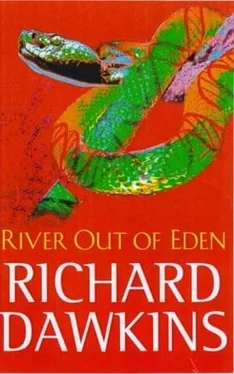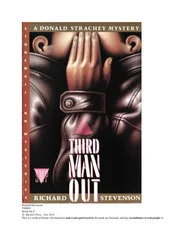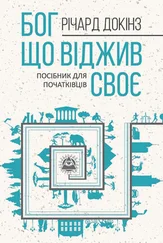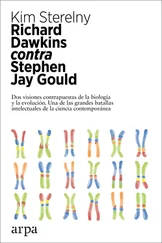In the long term, the river becomes full of genes that are good at surviving for their several reasons: slightly improving the ability to throw a spear, slightly improving the ability to taste poison, or whatever it may be. Genes that, on average, are less good at surviving – because they tend to cause astigmatic vision in their successive bodies, who are therefore less successful spear throwers; or because they make their successive bodies less attractive and therefore less likely to mate – such genes will tend to disappear from the river of genes. In all this, remember the point we made earlier: the genes that survive in the river will be the ones {29} that are good at surviving in the average environment of the species, and perhaps the most important aspect of this average environment is the other genes of the species; the other genes with which a gene is likely to have to share a body; the other genes that swim through geological time in the same river.

CHAPTER 2. ALL AFRICA AND HER PROGENIES
{31}
It is often thought clever to say that science is no more than our modern origin myth. The Jews had their Adam and Eve, the Sumerians their Marduk and Gilgamesh, the Greeks Zeus and the Olympians, the Norsemen their Valhalla. What is evolution, some smart people say, but our modern equivalent of gods and epic heroes, neither better nor worse, neither truer nor falser? There is a fashionable salon philosophy called cultural relativism which holds, in its extreme form, that science has no more claim to truth than tribal myth: science is just the mythology favored by our modern Western tribe. I once was provoked by an anthropologist colleague into putting the point starkly, as follows: Suppose there is a tribe, I said, who believe that the moon is an old calabash tossed into the sky, hanging only just out of reach above the treetops. Do you really claim that our scientific truth – that the moon is about a quarter of a million miles away and a quarter the diameter of the Earth – is no more true than the tribe's calabash? “Yes,” the anthropologist said. “We are just brought up in a culture that sees the world in a scientific way. They are brought up to see the world in another way. Neither way is more true than the other.”
Show me a cultural relativist at thirty thousand feet and {32} I'll show you a hypocrite. Airplanes built according to scientific principles work. They stay aloft, and they get you to a chosen destination. Airplanes built to tribal or mythological specifications, such as the dummy planes of the cargo cults in jungle clearings or the beeswaxed wings of Icarus, don't. [3]If you are flying to an international congress of anthropologists or literary critics, the reason you will probably get there – the reason you don't plummet into a ploughed field – is that a lot of Western scientifically trained engineers have got their sums right. Western science, acting on good evidence that the moon orbits the Earth a quarter of a million miles away, using Western-designed computers and rockets, has succeeded in placing people on its surface. Tribal science, believing that the moon is just above the treetops, will never touch it outside of dreams.
I seldom give a public lecture without a member of the audience brightly coming up with something along the same lines as my anthropologist colleague, and it usually elicits a murmuration of approving nods. No doubt the nodders feel good and liberal and unracist. An even more reliable nod-provoker is “Fundamentally, your belief in evolution comes down to faith, and therefore it's no better than somebody else's belief in the Garden of Eden.” {33}
Every tribe has had its origin myth – its story to account for the universe, life and humanity. There is a sense in which science does indeed provide the equivalent of this, at least for the educated section of our modern society. Science may even be described as a religion, and I have, not entirely facetiously, published a brief case for science as an appropriate subject for religious-education classes. [4](In Britain, religious education is a compulsory part of the school curriculum, unlike in the United States, where it is banned for fear of offending any of the plethora of mutually incompatible faiths.) Science shares with religion the claim that it answers deep questions about origins, the nature of life, and the cosmos. But there the resemblance ends. Scientific beliefs are supported by evidence, and they get results. Myths and faiths are not and do not.
Of all origin myths, the Jewish story of the Garden of Eden is so pervasive in our culture that it has bequeathed its name to an important scientific theory about our ancestry, the theory of “African Eve.” I am devoting this chapter to African Eve partly because it will enable me to develop the analogy of the river of DNA but also because I want to contrast her, as a scientific hypothesis, with the legendary matriarch of the Garden of Eden. If I succeed, you will find the truth more interesting, maybe even more poetically moving, than the myth. We begin with an exercise in pure reasoning. Its relevance will become clear soon.
You have two parents, four grandparents, eight great-grandparents and so on. With every generation, the number of ancestors doubles. Go back g generations and the number of {34} ancestors is 2 multiplied by itself g times: 2 to the power g. Except that, without leaving our armchair, we can quickly see that it cannot be so. To convince ourselves of this, we have only to go back a little way – say, to the time of Jesus, almost exactly two thousand years ago. If we assume, conservatively, four generations per century – that is, that people breed on average at the age of twenty-five – two thousand years amounts to a mere eighty generations. The real figure is probably more than this (until recent times, many women bred extremely young), but this is only an armchair calculation, and the point is made regardless of such details. Two multiplied by itself 80 times is a formidable number, a 1 followed by 24 noughts, a trillion American trillions. You had a million million million million ancestors who were contemporaries of Jesus, and so did I! But the total population of the world at that time was a fraction of a negligible fraction of the number of ancestors we have just calculated.
Obviously we have gone wrong somewhere, but where? We did the calculation right. The only thing we got wrong was our assumption about doubling up in every generation. In effect, we forgot that cousins marry. I assumed that we each have eight great-grandparents. But any child of a first-cousin marriage has only six great-grandparents, because the cousins' shared grandparents are in two separate ways great-grandparents to the children. “So what?” you may ask. People occasionally marry their cousins (CharL.s Darwin's wife, Emma Wedgwood, was his first cousin), but surely it doesn't happen often enough to make a difference? Yes it does, because “cousin” for our purposes includes second cousins, fifth cousins, sixteenth cousins and so forth. When you count {35} cousins as distant as that, every marriage is a marriage between cousins. You sometimes hear people boasting of being a distant cousin of the Queen, but it is rather pompous of them, because we are all distant cousins of the Queen, and of everybody else, in more ways than can ever be traced. The only thing special about royalty and aristocrats is that they can do the tracing explicitly. As the fourteenth Earl of Home said when taunted about his title by his political opponent, “I suppose Mr. Wilson, when you come to think of it, is the fourteenth Mr. Wilson.”
The upshot of all this is that we are much closer cousins of one another than we normally realize, and we have many fewer ancestors than simple calculations suggest. Seeking to get her reasoning along these lines, I once asked a student to make an educated guess as to how long ago her most recent common ancestor with me might have lived. Looking hard at my face, she unhesitatingly replied, in a slow, rural accent, “Back to the apes.” An excusable intuitive leap, but it is approximately 10,000 percent wrong. It would suggest a separation measured in millions of years. The truth is that the most recent ancestor she and I shared would possibly have lived no more than a couple of centuries ago, possibly well after William the Conqueror. Moreover, we were certainly cousins in many different ways simultaneously.
Читать дальше













